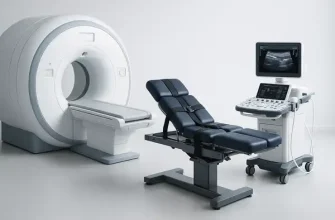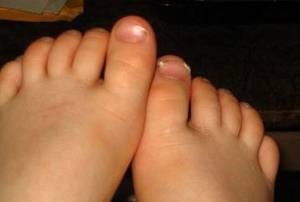Sudden weakness in the legs can be a concerning and scary experience, and it can happen to anyone of any age. This discomfort can be caused by various factors ranging from underlying medical conditions to physical injuries. If you are experiencing sudden weakness in your legs, it is vital to identify the cause to ensure proper treatment.
While some causes of leg weakness may resolve on their own, others require medical attention. Therefore, it is essential to understand how to diagnose the underlying problem accurately. Symptoms such as numbness, tingling, or pain may accompany sudden leg weakness, helping to narrow down possible causes. You may also need to undergo some tests, including nerve conduction studies and imaging tests like X-rays, CT scans, or MRI.
Treatment methods for sudden leg weakness vary depending on the underlying issue. Physical therapy, medication, and surgical intervention are some of the methods that healthcare professionals may use to treat leg weakness. If you want to live a healthy life, adopting lifestyle changes such as regular exercise, a healthy diet, and avoiding risky behavior is crucial.
In conclusion, sudden leg weakness can be alarming, but it is often easily treatable with the right diagnosis and treatment. Therefore, it is crucial to consult a medical professional when experiencing leg weakness, especially if it persists.
Is Sudden Weakness in the Legs Dangerous?
Sudden weakness in the legs can be a serious condition that requires urgent medical attention. In some cases, leg weakness can be a sign of a life-threatening condition such as stroke or heart attack. Therefore, if you experience sudden leg weakness along with other symptoms such as difficulty speaking, blurred vision, or chest pain, seek medical assistance immediately.
However, not all leg weakness is life-threatening. It can also be caused by less severe factors such as dehydration, muscle fatigue, or pinched nerves. These can be treated with self-care measures such as rest, hydration, and proper nutrition. If the weakness persists despite these measures, it’s essential to consult a doctor for further evaluation.
Ignoring sudden leg weakness can lead to serious complications such as falls, injuries, and mobility problems. Therefore, it is prudent to seek medical attention if you experience any form of weakness in your legs. Your doctor can provide you with an accurate diagnosis and the necessary treatment to ensure your safety and wellbeing.
A List of Causes of Sudden Weakness in the Legs
Sudden weakness in the legs can be caused by several factors, ranging from mild to severe. The causes of leg weakness can differ depending on whether it’s a temporary condition or a chronic problem. Here are some of the most common causes of sudden leg weakness:
- Dehydration: When the body lacks enough fluids, it can impair muscle function, and cause weakness and fatigue.
- Muscle Fatigue: Overuse of muscles can lead to fatigue, resulting in temporary weakness in the legs.
- Pinched nerves: Compression or damage to nerves in the legs can cause sudden weakness, pain, or numbness.
- Peripheral neuropathy: A condition that affects the nerves outside of the brain and spinal cord, which can cause weakness, tingling, and numbness in the legs.
- Stroke: A stroke can disrupt blood flow to the brain, resulting in sudden weakness, numbness, or paralysis in one or both legs.
- Multiple sclerosis: A chronic condition that affects the nervous system, causing fatigue, weakness, and problems with coordination.
It’s essential to pinpoint the underlying cause of your leg weakness to receive the appropriate treatment. Therefore, consulting a doctor is necessary for accurate diagnosis and treatment planning.
Associated Symptoms of Sudden Weakness in the Legs
Sudden weakness in the legs can be a concerning and sometimes debilitating experience. Recognizing the associated symptoms that often accompany leg weakness can help identify the underlying cause and guide appropriate treatment. Some common symptoms that may accompany sudden weakness in the legs include muscle pain, numbness, tingling, or a feeling of heaviness in the affected limb.
In more severe cases, individuals may experience difficulty with coordination, problems with balance and stability, or even a complete loss of control and movement in the affected leg. It’s important to note that sudden leg weakness can also be associated with severe medical issues like stroke, heart attack, or blood clots, which require immediate medical attention.
If you experience any of these symptoms, it’s crucial to seek medical attention promptly. Your doctor can conduct a thorough examination, order appropriate tests, and determine the underlying cause of your leg weakness to develop a personalized treatment plan that addresses your specific needs.
How to Diagnose Leg Weakness
If you experience sudden leg weakness, it’s crucial to seek immediate medical attention to determine the root cause of your condition. Your doctor will use various diagnostic tests to get a comprehensive understanding of your health status and identify possible underlying conditions giving rise to the symptom.
In the initial assessment, the doctor will conduct a thorough physical examination and evaluate your medical history. The doctor may also inquire about medications or supplements you take regularly to identify potential side effects.
Based on the severity of the weakness in your legs, your doctor may order imaging tests such as X-rays, computed tomography (CT) scans, magnetic resonance imaging (MRI), or nerve conduction studies. These tests can provide a more detailed picture of the underlying cause of your leg weakness and assist your doctor in developing an appropriate treatment plan.
In some cases, your doctor may also recommend lab tests such as a complete blood count (CBC), blood glucose screening, electrolyte panel or other tests to investigate possible underlying medical conditions such as diabetes, hyperthyroidism or low potassium levels.
Overall, early diagnosis and prompt medical attention are essential for successful treatment of leg weakness.
Treatment Methods for Sudden Weakness in Legs
If you are experiencing sudden weakness in your legs, getting prompt medical attention is crucial. Once a diagnosis is made, your doctor will determine the appropriate treatment plan based on the underlying cause. Here are some common treatment methods for sudden leg weakness:
- Medications: If your leg weakness is caused by an underlying medical condition, such as multiple sclerosis or stroke, your doctor may prescribe medications to manage the symptoms and prevent further damage.
- Physical Therapy: Physical therapy can help restore strength and mobility to your legs. Your therapist will develop a personalized plan that may include exercises, stretching, and balance training.
- Rest and Recovery: If your leg weakness is caused by a minor injury or overuse, your doctor may recommend rest and recovery. This involves avoiding strenuous activities that could aggravate the condition, using hot or cold therapy, and taking over-the-counter pain medications.
- Surgery: In severe cases, surgery may be necessary to relieve pressure on nerves or restore blood flow to the legs.
It is important to follow your doctor’s recommended treatment plan and attend all follow-up appointments to monitor progress and prevent further complications.
How to Make Lifestyle Changes to Prevent Sudden Weakness in Legs?
If you have ever experienced sudden weakness in your legs, you know how scary it can be. While prompt medical attention is crucial, making lifestyle changes can also help prevent future occurrences. Here are some tips to consider:
- Incorporate regular exercise into your routine – this will improve balance, strength, and circulation in your legs.
- Maintain a healthy weight – excess weight puts extra pressure on your legs, which can cause weakness.
- Quit alcohol and tobacco use – both of these substances can contribute to nerve damage, which can lead to leg weakness.
- Take regular breaks when sitting for extended periods – this can help prevent blood clots and minimize the risk of leg weakness.
- Eat a diet rich in vitamins and minerals – proper nutrition is essential for maintaining healthy nerves and muscles.
By making these lifestyle changes, you can improve your overall health and prevent sudden weakness in your legs. It’s important to consult with your doctor before starting any new exercise or diet regimen.









